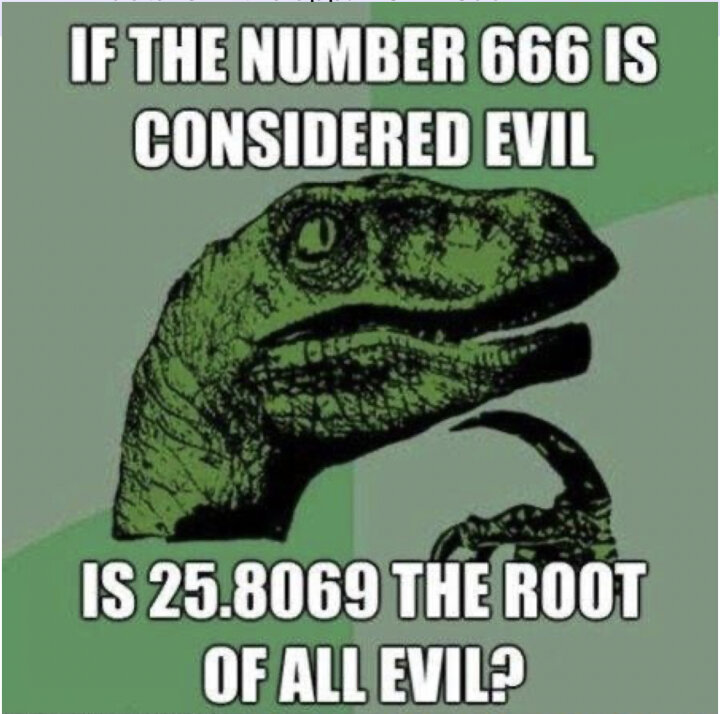ElwoodBlues · M
Well, 8.732891741295967 is the cube root of evil don't forget!!!
Oh, right, you're gonna want the other two cube roots😂🤣
-4.366445870647983+7.562906096461629i
4.366445870647983-7.562906096461629i
This shows the 3 cube roots of 1 where x is the real axis and y is the "imaginary" axis.

Oh, right, you're gonna want the other two cube roots😂🤣
-4.366445870647983+7.562906096461629i
4.366445870647983-7.562906096461629i
This shows the 3 cube roots of 1 where x is the real axis and y is the "imaginary" axis.

View 7 more replies »
helenS · 36-40, F
@ElwoodBlues Yes they are very different from reals. Infinitesimals are an extension of the real number system, just like complex numbers.
Look at this equation:
dy = k * dx
The product of the infinitesimal dx and a real number k will always be infinitesimal, however big k is. The product will never be >1, so dx isn't even Archimedean.
Look at this equation:
dy = k * dx
The product of the infinitesimal dx and a real number k will always be infinitesimal, however big k is. The product will never be >1, so dx isn't even Archimedean.
ElwoodBlues · M
@helenS OK, I have now learned about hyperreal and surreal numbers, LOL!!!
helenS · 36-40, F
@ElwoodBlues It's amazing how easy it is to see if a given real function is continuous at x=x0, using hyperreals: if x is increased by an infinitesimal amount dx, then y(x) will also change by an infinitesimal quantity dy.
Check with y=x^2 if you want to see a trivial example:
y(x+dx) = (x + dx)^2 = x^2 + 2x*dx + (dx)^2;
y(x+dx) – y(x) = 2x*dx + (dx)^2.
2x*dx + (dx)^2 is, of course, infinitesimal, so the function is continuous for all x∈ℝ.
Compare that with Cauchy/Weierstrass epsilontics!
I've never read anything about the "surreals", but I read an introductory textbook about the hyperreals some time ago, and it clicked immediately. Now I'm no longer ashamed to see dy/dx as a fraction, instead of a limit.
Hey it's nice to talk with someone on SW about maths! 🌷
Check with y=x^2 if you want to see a trivial example:
y(x+dx) = (x + dx)^2 = x^2 + 2x*dx + (dx)^2;
y(x+dx) – y(x) = 2x*dx + (dx)^2.
2x*dx + (dx)^2 is, of course, infinitesimal, so the function is continuous for all x∈ℝ.
Compare that with Cauchy/Weierstrass epsilontics!
I've never read anything about the "surreals", but I read an introductory textbook about the hyperreals some time ago, and it clicked immediately. Now I'm no longer ashamed to see dy/dx as a fraction, instead of a limit.
Hey it's nice to talk with someone on SW about maths! 🌷
beermeplease · M
please don't make me do math so early in the morning 😔
GJOFJ3 · 61-69, M
It’s seems to fit squarely
TexChik · F
Was this what the title of this song was all about?
[media=https://youtu.be/8A3HZvGN0qs]
[media=https://youtu.be/8A3HZvGN0qs]









